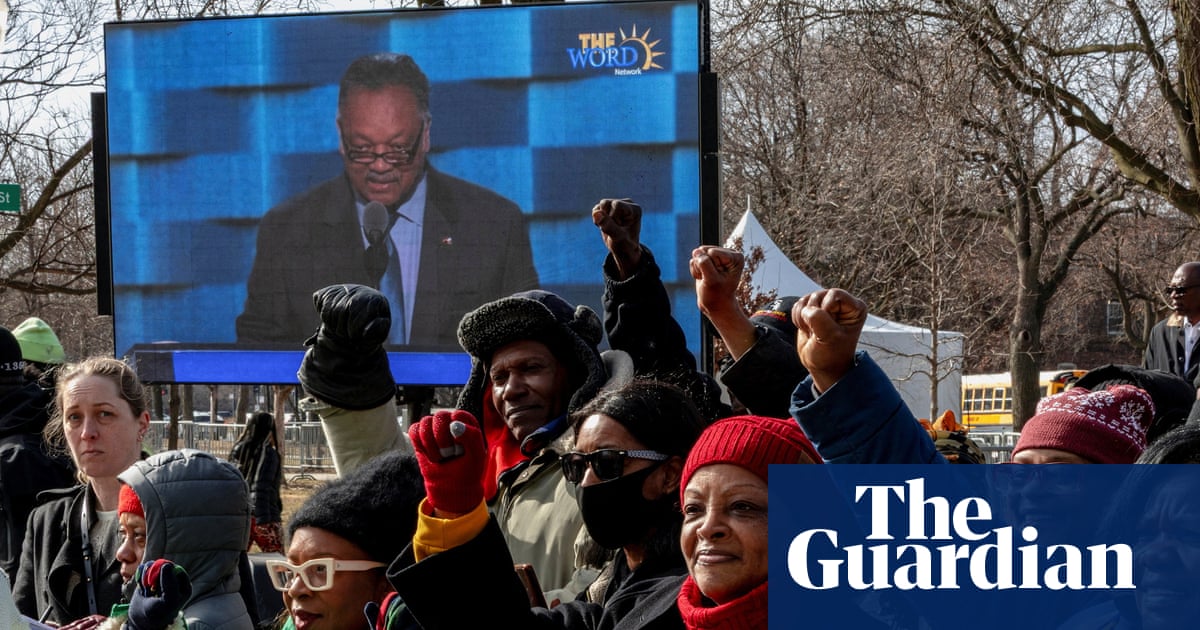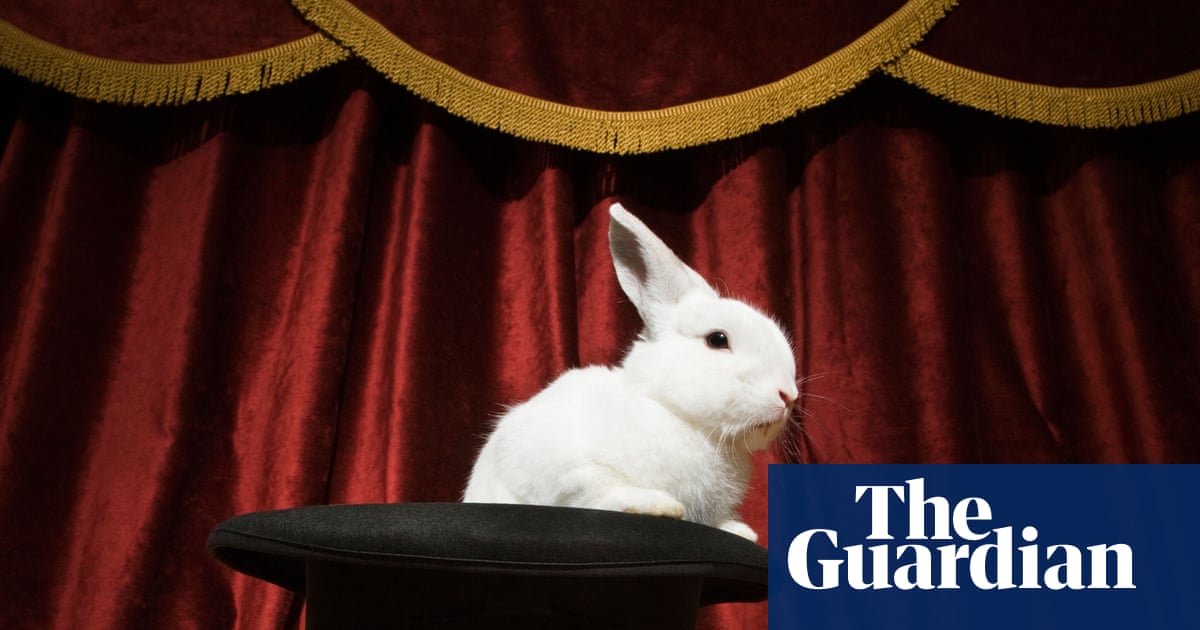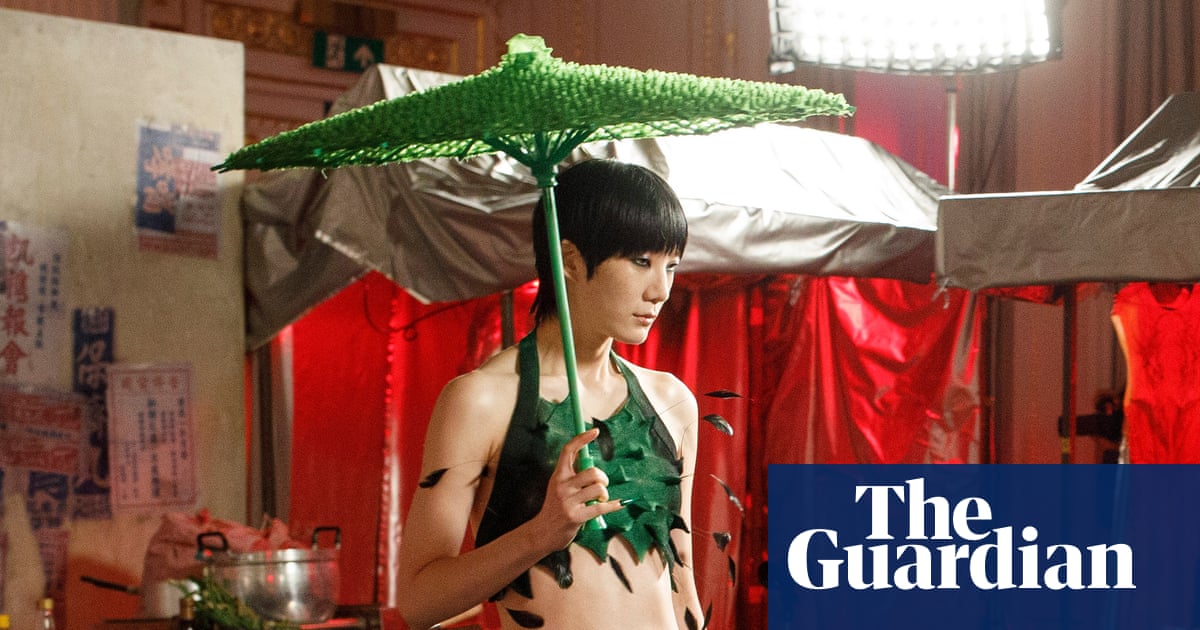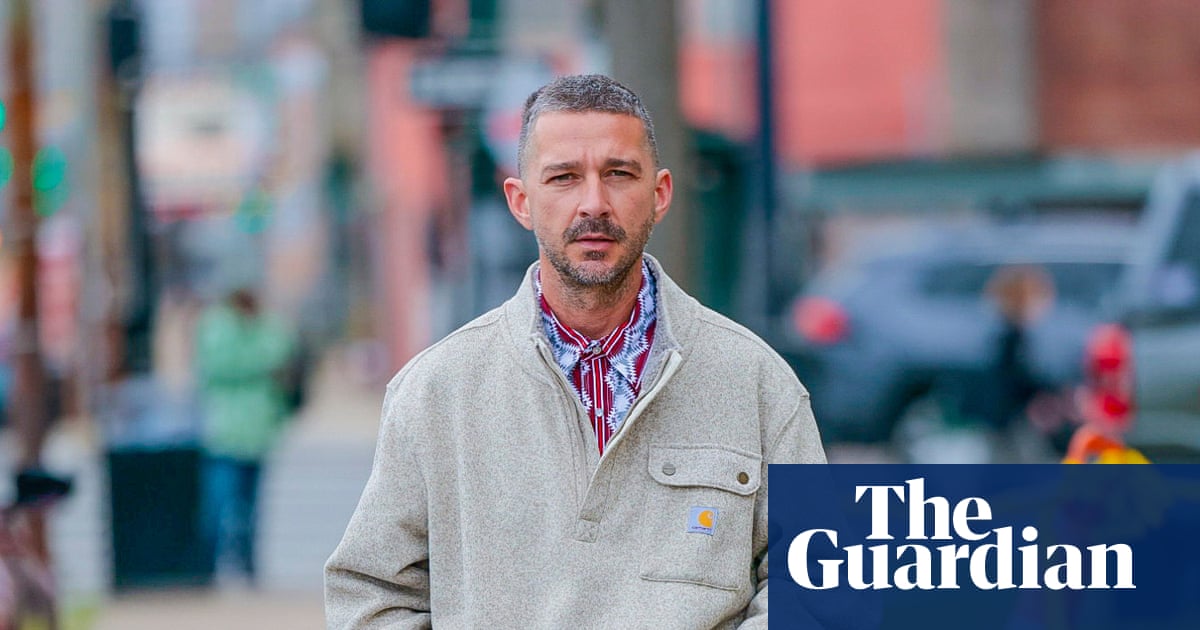Premiered in 2000, Jake Heggie’s Dead Man Walking is the most performed 21st-century opera, yet, surprisingly, this co-production with Opera North and Finnish National Opera is its first full professional staging in the UK. Based on Sister Helen Prejean’s 1993 memoir of the same name, it dramatises her experiences as a spiritual advisor to a convicted murderer on death row: Joseph De Rocher (a composite character based on two men in the book).
As Prejean herself has pointed out, the work is not about capital punishment per se but a reflection on issues of truth, love, compassion, forgiveness and redemption. Yet as the opera draws to its chilling conclusion and, in Annilese Miskimmon’s searingly honest production, we hear the dying man’s ragged final breaths, it is hard not to reflect on a society in which execution by lethal injection is still a legal penalty today.
Despite the harrowing subject matter, Heggie and librettist Terrence McNally bring a great deal of humanity and simple wisdom to a story in which extraordinary events affect ordinary people. Against that is set the anguish of the survivors: both De Rocher’s mother and the victims’ parents. The brutal rape and murder occur in the opening scene, removing any temptation to play a game of “Did he do it or not?” Yet even though we know he is guilty, his confession to Sister Helen is the opera’s emotional heart.
Heggie’s masterly score is unashamedly tonal, drawing on hymns and spirituals, jazz and blues, yet never sounding like mere pastiche. The music is propulsive and supportive by turns, easily holding the attention throughout a work that makes a virtue of taking time to tell its tale.
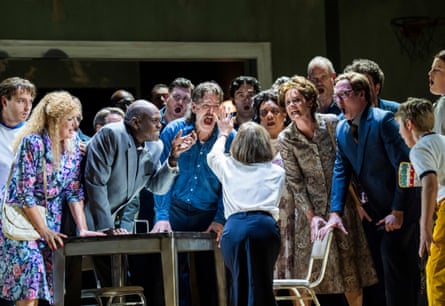
Miskimmon’s production keeps the murder victims front and centre, their ghosts returning to haunt Sister Helen in a theatrical coup at the end of the first act. Alex Eales’s ingenious set does duty as the state penitentiary, the nuns’ mission and even a Louisiana highway. Evie Gurney’s costumes, despite the odd ungainly wig, and DM Wood’s atmospheric lighting do the rest. The score is faultlessly played by the ENO Orchestra, and given an incisive workout by Kerem Hasan, whose sense of pacing never falters.
Christine Rice, singing with unforced refinement, brings huge emotional reserves and a natural physicality to Sister Helen, complementing a wry gawkiness with commanding stillness. As De Rocher, Michael Mayes, in remarkably his 13th production of the opera, sings with power and pathos while see-sawing between rage and despair. Sarah Connolly brings vocal elegance and a gentle empathy to De Rocher’s fraying mother, with Madeline Boreham a clarion-voiced standout as the supportive Sister Rose. Ronald Samm and Jacques Imbrailo make their marks as an unctuous prison chaplain and the conflicted father of one of the victims, respectively.

.png) 3 months ago
95
3 months ago
95





